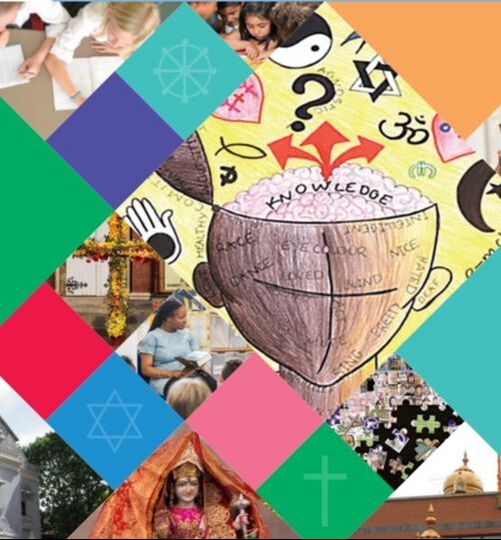Religious Education
Delivery of our RE curriculum is done so through the Leicestershire Agreed Syllabus.
Delivery of our RE curriculum is done so through the Leicestershire Agreed Syllabus.
Intent
The purpose of RE is captured in the principal aim, which is intended to be a shorthand version for day-to-day use. It should be considered as a doorway into the wider purpose articulated above.
Principal aim
The principal aim of religious education is to explore what people believe and what difference this makes to how they live, so that pupils can gain the knowledge, understanding and skills needed to handle questions raised by religion and belief, reflecting on their own ideas and ways of living.
The purpose of RE is captured in the principal aim, which is intended to be a shorthand version for day-to-day use. It should be considered as a doorway into the wider purpose articulated above.
Principal aim
The principal aim of religious education is to explore what people believe and what difference this makes to how they live, so that pupils can gain the knowledge, understanding and skills needed to handle questions raised by religion and belief, reflecting on their own ideas and ways of living.
|
Foster and develop a hunger and curiosity for life-long learning and enthusiasm for knowledge about Religious Education.
|
A curriculum that is relevant and meaningful to young people that are growing up in Burbage today.
|
Implementation
The teaching and learning approach has three core elements, which are woven together to provide breadth and balance within teaching and learning about religions and beliefs, underpinning the aims of RE. Teaching and learning in the classroom will encompass all three elements, allowing for overlap between elements as suits the religion, concept and question being explored.
Making sense of beliefs
Identifying and making sense of core religious and non-religious beliefs and concepts; understanding what these beliefs mean within their traditions; recognising how and why sources of authority (such as texts) are used, expressed and interpreted in different ways, and developing skills of interpretation.
Making connections
Evaluating, reflecting on and connecting the beliefs and practices studied; allowing pupils to challenge ideas studied, and the ideas studied to challenge pupils’ thinking; discerning possible connections between these and pupils’ own lives and ways of understanding the world.
Understanding the impact
Examining how and why people put their beliefs into action in diverse ways, within their everyday lives, within their communities and in the wider world.
Impact
At Sketchley Hill Primary School, we seek to ensure that all pupils in our school are educated to develop spiritually, academically, emotionally and morally to enable them to better understand themselves and others and to cope with the opportunities, challenges and responsibilities of living in a rapidly changing, multicultural world. Regular assemblies and celebrations of religious and non-religious festivals and events, implemented alongside regular R.E. lessons, will help to celebrate the diversity of the wider community in Leicestershire, including their beliefs, traditions, culture, language and history.
The teaching and learning approach has three core elements, which are woven together to provide breadth and balance within teaching and learning about religions and beliefs, underpinning the aims of RE. Teaching and learning in the classroom will encompass all three elements, allowing for overlap between elements as suits the religion, concept and question being explored.
Making sense of beliefs
Identifying and making sense of core religious and non-religious beliefs and concepts; understanding what these beliefs mean within their traditions; recognising how and why sources of authority (such as texts) are used, expressed and interpreted in different ways, and developing skills of interpretation.
Making connections
Evaluating, reflecting on and connecting the beliefs and practices studied; allowing pupils to challenge ideas studied, and the ideas studied to challenge pupils’ thinking; discerning possible connections between these and pupils’ own lives and ways of understanding the world.
Understanding the impact
Examining how and why people put their beliefs into action in diverse ways, within their everyday lives, within their communities and in the wider world.
Impact
At Sketchley Hill Primary School, we seek to ensure that all pupils in our school are educated to develop spiritually, academically, emotionally and morally to enable them to better understand themselves and others and to cope with the opportunities, challenges and responsibilities of living in a rapidly changing, multicultural world. Regular assemblies and celebrations of religious and non-religious festivals and events, implemented alongside regular R.E. lessons, will help to celebrate the diversity of the wider community in Leicestershire, including their beliefs, traditions, culture, language and history.



